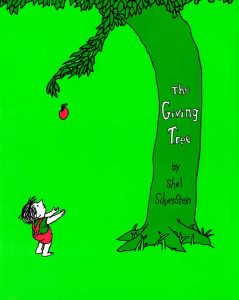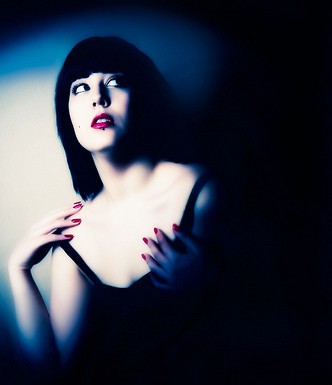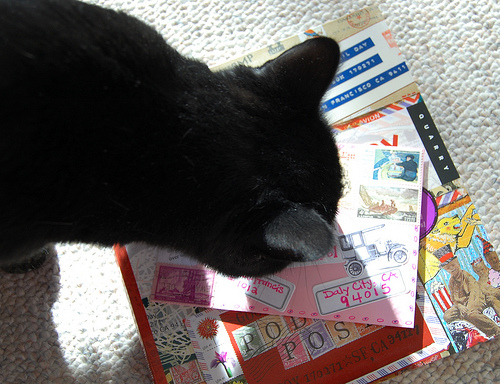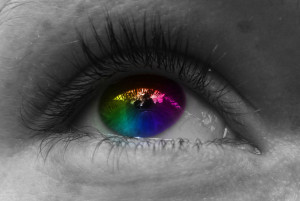Why Identifying Your Reading Audience Age Is Crucial
You’re writing an intense novel about vampires. You’re exploring deep themes of family loyalty and courage. You believe adult readers will love this high-action somewhat violent novel.
But your protagonist is an eight-year-old boy who is struggling to deal with his new life in this not-so-brave new world.
This is a big problem.
And it’s similar to what I see week after week as I critique novels by aspiring writers.
I get that you have a killer idea and you’ve worked hard to come up with a great, compelling plot with lots of action and twists and complications. But before you began, did you even consider who your target audience might be?
While there are no set boundary lines when it comes to demographics of readers, there are some logical conclusions we all could make about readers and genre. We know we aren’t writing to children when we write erotica, and we aren’t going to have the protagonist be a six-year-old child (God forbid!). I’m using this as an extreme example.
But it’s crucial we know who we want to read our novel, who would enjoy our book.
The General Fantasy Audience
This was on my mind years ago when I attend the Book Expo in New York. I was writing what I considered an adult, sophisticated fantasy series, but I knew young readers (ten and up was my guess) would love my allegorical fairy tales.
I’d done some research but couldn’t find the answer I needed in order to properly market or pitch these books to publishers. What determined “adult” fantasy as opposed to YA fantasy or Middle Grade fantasy? Was there a distinction?
I knew books like Twilight and The Hunger Games targeted teens, yet adults love these books. And what about the most successful fantasy series of all time—the Harry Potter books, written, really, for Middle Grade kids? I know of more adults obsessed with that series than I do ten-year-olds. And when we look at the length and depth of plot of those books, the “target age” definition gets fuzzy.
Since the senior acquisitions editor of Baen Books was standing nearby, I went over to her and posed the question about adult fantasy versus “kid” fantasy novels. I asked her about the reading audiences and how to define whether my books were for adults or teens or even younger readers.
She surprised me with her answer. She said, in her opinion, there was no delineation in fantasy, for the most part (unless you get into erotica and/or extreme violence—or the books are for early readers). She gave a general sweep of all fantasy being aimed at about “age fourteen to ninety.”
But I think this is very unique among genres. Clearly, fantasy attracts readers of all ages, and some fantasy, like G.R.R. Martin’s series, with its very adult scenes and complex plot, is meant for adults. Specific Middle Grade fantasy, like that of Rick Riordan’s, is aimed at youngsters. The characters’ voices, the plots, and the structure of sentences and chapters, as well as vocabulary, target those younger readers.
That’s not to say adults don’t enjoy those books. Millions of adults read and love Madeline L’Engle’s classic A Wrinkle in Time, clearly a “children’s” book. And my novel Time Sniffers, which is YA, has fans from age ten to eighty.
So if you’re writing fantasy, you may be relieved (or confused) knowing that you might not have to define a narrow audience age for your book. It may appeal “to all ages.”
But this isn’t often the case with genres other than fantasy.
Adult Novels with Young Protagonists
If you’re targeting Middle Grade, you will have specific concerns for those readers. And if you are getting raunchy and violent, you’ll want to clearly state your books are for adults (and it helps to note that on your sales page, to avoid angry readers writing scathing reviews for not first having been warned).
I’ve had publishers tell me that your protagonist should be about three years older than your target audience. If I want to attract the YA market, I need my protagonist to be at least seventeen or eighteen. Maybe even early twenties (though that could venture into New Adult, depending on the premise).
If you’re writing a novel with a protagonist who is eight years old, you should be thinking about a children’s book. Which is short, with appropriate vocabulary and subject matter for young children.
That’s not to say adults don’t enjoy children’s books. They may. But that likely isn’t an author’s main intent—to draw in adult readers. The net you cast with your book may bring in fish you didn’t expect. But you will cast your net in the area where your desired catch is loitering.
But wait, you say. What about adult books—definitely adult—that have a main character who is a child or teen? What about Peace like a River and To Kill a Mockingbird? Martin’s many scenes are in children’s POVs (Game of Thrones). And what about books like the huge best seller Redeeming Love, by Francine Rivers, which has numerous scenes in the POV of a child?
Here’s where you need to take a step back and ask who you are writing your novel to and why.
Those books, with their adults themes and issues and sophisticated language and plots, are for adult readers. But if it’s understood that adults don’t want to read books that feature a child protagonist, why does these successfully work as adult novels and sell well?
- First, many of these books are structured such that the narrator of the story is the child speaking years later, as an adult. In other words, Scout, in Mockingbird, and Reuben, in Peace like a River, begin telling a story of when they were a child. And with that structure, they are adults speaking to adults. The vocabulary, sophistication of story, and all the novel elements are written in an adult voice. Another great example of this is The Kite Runner.
It’s nearly impossible (I’m guessing—if you can point out a novel to me that succeeds, please share in the comments!) to write a novel in the POV of an eight-year-old, sounding eight, addressing plot and issues that adults would be interested in reading, and staying faithful to that child’s voice, knowledge, and maturity.
- Second, many of these books have only some of the scenes in a child’s POV. In Martin’s books, we have many scenes in the POV of the Stark children, for example, who are of various ages, and they’re brilliantly written. But the overarching plot is an amalgam of dozens of characters, young and old, weaving a very complex tale.
If you’re aiming to write for adults and have a young POV character, you do want to keep faithful to that voice and maturity in her scenes, but those scenes would be part of a bigger story—one that is mature and targeted at adult readers.
A novel about a mother trying to cope with a troubled child might feature some scenes in a child’s POV, for example. A novel that shows a father trying to save a kidnapped child might show some scenes in that child’s POV to indicate her fear and what condition she is in.
- Third, some novels in the literary genre, due to the writing style and manner of storytelling, may successfully follow the story of a child. While I can’t think of any at the moment, if you can, please share in the comments.
Before you get too far in writing your novel, be sure to clearly identify your audience. Be sure your protagonist and his age are just right for your targeted reader. Also be sure your writing style, premise, and novel structure reflect the age of the audience you are writing to.
 This is so important because, when you write a novel, you are writing it for specific readers. Rarely can you say your novel “is for everyone.” That’s almost never the case. I will say a book like The Giving Tree by Shel Silverstein—a picture book for children—is a book for all ages. I cry every time I read it, and it’s on my list of favorite books of all time. But I can say that about very few books.
This is so important because, when you write a novel, you are writing it for specific readers. Rarely can you say your novel “is for everyone.” That’s almost never the case. I will say a book like The Giving Tree by Shel Silverstein—a picture book for children—is a book for all ages. I cry every time I read it, and it’s on my list of favorite books of all time. But I can say that about very few books.
Don’t try to write a novel for everyone. Yes, you want your novel to have “universal appeal,” but you should have a specific reader in mind.
Picture one person. Who is he (or she—does gender matter)? How old is he? Where does he live? What nationality or race is he? What is his educational background and reading level? While you won’t want to confine your story to a very narrow demographic most of the time, picturing an “ideal” reader—or maybe better to come up with a diverse group of ideal readers instead—imagining that reader can help guide you as you formulate your plot line, characters, complications, and themes.
What are your thoughts on this? Do you have a clear picture of your target reader? Are you making sure your character’s voice, your writing style, your vocabulary, and your novel structure fit your niche genre? What questions do you have about this? Share in the comments.












The Secret Life of Bees is written from the pov of a 14-year-old girl. It’s definitely not aimed toward 11 year olds — nor, in my opinion, is it YA.
The Secret Life of Bees, like Mockingbird, is told by the narrator retrospectively, as an adult. So, here to, we see and adult telling a story about when she was a child, which allows the adult perspective and adult readership (same as with Peace like a River).
I struggle sometimes with this, since most books are written about something that happened in the near or distant past. When an adult tells a story about something that happened to them as a child, should the language and understanding of events be that of an adult or a child?
Thank you SO MUCH for this post! It’s spot-on for my WIP. I am finishing up the last (hopefully) draft of my Epic Fantasy novel, which features a 16-year-old protagonist. The plot has political intrigue, complex battle scenes with violence similar to the “Lord of the Rings” movies, but no sex other than some squeaky-clean kissing. I originally was thinking of adults because two of the four of the POV characters are adults, but the age of my protagonist and the lack of explicit sexual content seemed to put it squarely in YA territory. Tweens and older are so much more sophisticated today than when I was that age. Thanks again for all the help you give us aspiring writers through your blog!
You’re welcome. I’m, to be honest, not at all familiar with the parameters of today’s (somewhat new) genre New Adult, which is aimed at those in their twenties, and so maybe research that a bit to see if your book is more for that audience. I wouldn’t think so, with a sixteen-year-old protagonist, but with a complex plot and major adult characters, it may well be.
I haven’t heard of the New Adult genre until this post. this also begs the question — what to do if you DO NOT fit an age group. As I said, my protagonist is 16 and the story is squarely on her shoulders. The other major & “major minor” characters range from her 16 yo love interest, to others in their mid-20s, 30s, to early 50s, who all support an important subplot. But now you’ve given me some concerns!
Hi Cindy,
I would place your novel, from the sound of it, in Adult Fantasy. AF can have young protagonists. One example is Patrick Rothfuss’ THE NAME OF THE WIND. True, that story is told from the POV of a man in his 20s relating his exceptional life story, starting when he was a child and focusing mainly on his teenage years, but he’s essentially a teen throughout.
Also, Adult Fantasy can have no romance or clean romance. Not a problem. Lois McMasters Bujold, Sharon Shinn and Maria Snyder are some authors who write the latter. THE NAME OF THE WIND and its sequel have a clean romance, too (still waiting on the final installment).
YA, on the other hand, has as much to do with the focus of the story and the overall ‘voice’ as it does the age of the protag. YA focuses on coming-of-age themes above anything else.
New Adult, as far as I’ve been able to tell, has not yet successfully expanded to genres other than contemporary romance and paranormal romance. There may be a few exceptions, but I wouldn’t focus on that as a niche for your story at this point.
To help sort through these distinctions more, I recommend spending time at Absolute Write Water Cooler forums, reading through the ‘sticky’ posts in both the YA subforum and the Fantasy subforum.
Also, bestfantasybooks.com is an excellent resource to finding fantasy books by subgenre. Reading a wide variety of fantasy will help you figure out your niche better than almost anything else.
Good luck!
I can’t help but think of Charles Dickens novels such as David Copperfield or Great Expectations, but those are told from the adult perspective as well. They are a bit harsh for younger children to read.
Which makes me think of my favorite “children’s” novel, written more than a hundred years ago: The Wind in the Willow, a book the author wrote for his young son. It’s written extremely “adult” in terms of abstract concepts, vocabulary, and syntax, but it’s delightfully “childish” in story.
I find it interesting to see how my three-year-old grandson is wholly engrossed in Bill Peet’s books for kids, which have very sophisticated vocabulary, many words and phrases the likes of which most adults would never use or know how to. I hear my little guy sometimes using these “big” words, much to my amazement. Maybe we aren’t giving kids enough credit. Perhaps six-year-olds back in Dickens’s time found reading A Christmas Carol quite approachable.
C.S., I think you nailed it. There’s been a heap of dumbing down since Dickens’ time. And literature specifically directed at YA would probably seem like an absurd idea to him and many others.
Think about Jane Eyre. She’s a young adult during the greater part of the story, but it’s not only for teens or young adults, but enjoyed by more mature adults, too. I’ve read it more than once as an older adult!
My protagonist is a middle-class black woman in her early fifties, but what she experiences could happen to any woman. I envision my reader as age thirty-five and up, middle class, but not necessarily black, but my reader definition may be too broad.
Hi Billie, not necessarily. The best novels, while targeting a niche genre, have such universal themes or issues that it often doesn’t matter about age group, race or background, education, or culture.
So clearly stated. I think it is also important to think about your audience when labeling your book with a genre. If you put the wrong label on it then your target audience may never see it.
Loved the article, you have great points. One book that popped into my head is Room by Emma Donoghue. The story is told by a five year old boy. The POV never switches and it sounds like a child’s thoughts. In my opinion, what keeps adults interested is the tragic situation the boy and his mother are in as the reader is presented with it right away, just by reading the back cover copy.
It can be done, clearly. A real challenge for an author to write in such a way to rivet adults readers.
I never thought about audience when I wrote or when my publisher put out my first book, but most people who read it thought it was appropriate for teens, even though it wasn’t marketed to them. I’ve since republished it (long story) and have categorized it as YA, even though my middle-aged and older friends have enjoyed it. It’s tricky.
You have presented again a great lesson for those of us who are still learning about the craft and have yet to grab the attention of an agent. Although as others have pointed out, yes there are exceptions to the general rule. Philip Pulmans ‘His Dark Materials’ Trilogy being an excellent example. It sits in young adult at a range of 11 to 18 years, yet the protagonist Lyra is 11 when the story starts. As I have said above, these are exceptions, and I do believe to increase your chances of success in a hugely competitive market this is excellent advice. Thank you.
Yeah, The Golden Compass is definitely mature and for adult-level readers with the sophistication of plot and language (I really enjoy that series, though I take issue with some of the underlying views and messages). The protagonist, while young, is fairly mature and is dealing with adult concepts. It does kind of break this basic rule, but fantasy genre sometimes can get away with that because there mostly is little to no distinction between YA and adult fantasy. Or so the top acq. ed. at Baen told me at a conference.
What are the lines that are drawn when it comes to YA versus adult? Does profanity need to be removed in order for it to fit that genre, etc.?
The best way to make determinations like this is to read a number of books in your genre (best sellers) and see how they handle such issues. I’ve not noticed any profanity in YA or MG, at least in the books I’ve read.
I’m writing a compilation book of stories with characters of various ages and genders (mostly teenage to young adult) and I’m having trouble with what age group my target audience should be. It is fantasy but also slightly horror as things go horribly wrong in each one, nothing extremely dark or violent but might be too much for below 10. I believe the stories would greatly appeal to those around that age and above as it also has an element that runs through all the stories that give it a kind of universal appeal as the theme could apply to just about everyone in the world at one point or another but I’m worried people will have issues with that range. The best example I can give of the type of stories I’m writing is the book ‘Scary Stories To Tell In The Dark’. It’s horror written for children (9-12) but that book has had a lot of controversy surrounding it, mainly on whether it’s genuinely appropriate for children. Having read it myself when I was that age and loved it I feel kids can handle more than people are ready to accept. Do you have any advice on what I can do to find the right audience and avoid this stigma?
I think the best way to gauge is to look at best sellers currently being published that have this component of horror and see how dark they are and what language/wording the authors use, as well as the type of action that takes place in the stories. Readers have varying opinions. I’ve had readers criticize some of the things in my sweet Western romances as being too religious, for example, just because my characters attend church and pray sometimes. Go figure. Once you do the research, I think just going with your heart and conscience is the ticket.